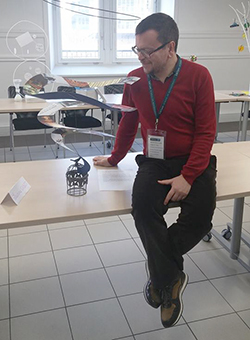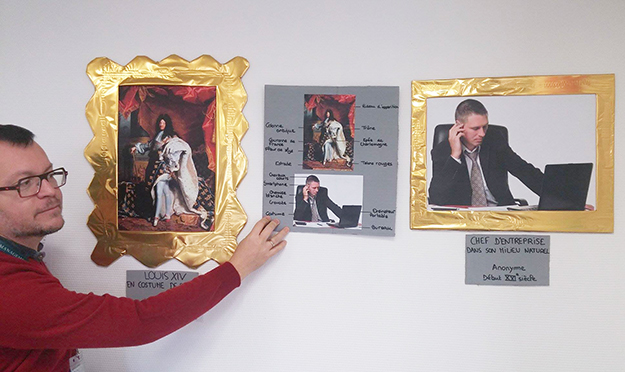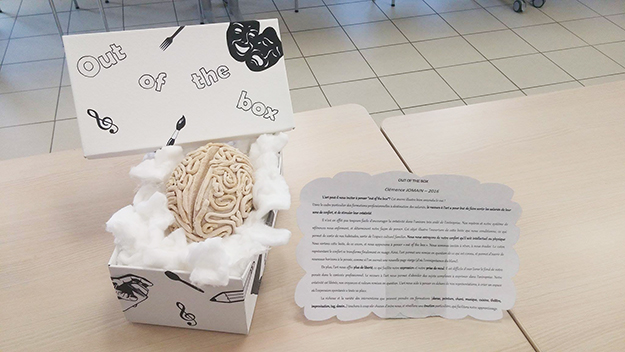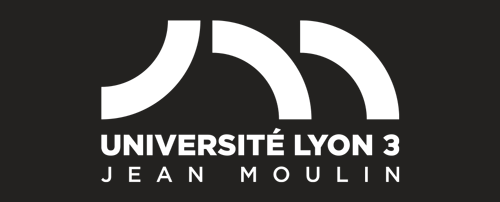In the same section
Management and Humanities: how the Master’s in Human Resources bridges the gaps between the worlds
Since the beginning of the school year, iaelyon has chosen to develop modules dedicated to Humanities in its final year of Master’s programs, thus enhancing the openness to the worlds and the decompartmentalization fully embedded in the Master’s Management and Human Resources both in form and content. Get a first insight on this experience, with Christophe Falcoz, Academic Co-director.
 To what extend is the openness to Humanities an opportunity for students?
To what extend is the openness to Humanities an opportunity for students?
Christophe Falcoz: The Management and Humanities modules allow to develop a critical judgment, to improve the general knowledge and civic initiatives of students by mixing subjects. I chose to work specifically with non-managerial lecturers. The 23 hour-module is exclusively dedicated to other disciplinary views and therefore requires the participation of people with experience different from that of “traditional” Faculty teaching in a Master’s in Management. The module is differentiating thanks to new inputs on themes studied and allows a different academic approach that changes student habits. This positions the School in a “Think outside the box” strategy echoing the “Think Large” motto of iaelyon.
This also allows us to stay in tune with the concerns of students regarding subjects related to their Master’s program. The module is an opportunity to talk about emerging and topical subjects, with the possibility to involve new lecturers each year. For instance next year, I am planning to discuss the management of terrorism threats in companies.
Concretely, how was the module organized this year in the Master’s in Human Resources Management?
This year, five participants came and talked about five different topics for four hours each: Secularism in the Public Service (Brigitte Berthet, Education Department, Head of School Services, City of Lyon), Team Management (Philippe Forget, orchestra conductor and composer), Place of Art in Management Programs and Representation of Power and Leaders in Historical Painting (a module that I conducted by immerging students into a virtual visit of the Louvre), Sustainable Development and Social Responsibility of Companies from a philosophical point of view (Jean-Philippe Pierron, Professor at the Faculty of Philosophy, University Jean Moulin) and last but not least, Well-being, Health at work and Full-awareness (Dominique Steiler, “Mindfulness, Well-being at work and economical peace” chair holder at Grenoble Ecole de Management).
We shared beautiful moments, for instance with Philippe Forget who followed an unusual professional path: he comes from a family with no musician and he did not attend the conservatory, which amazed students. This experience allowed to convey strong messages on different concepts: daring, succeeding by getting off the beaten track, seizing opportunities and listening to caring advice:” You need to be able to listen to people who give you the go-ahead to accomplish what seems unattainable”, Philippe Forget sums up.
Dominique Steiler has also a surprising background. He is a former fighter pilot who wrote a thesis on management in the US after his time in the army and who now practices meditation. We talked about the full-awareness approach, an emerging topic in companies nowadays.

How was the assessment of students organized after the completion of the module?
First, we organized a collective assessment. The 26 students were divided in five groups and asked to write a summary of each of the sessions in order to point out the key elements that will be useful in their professional life. The individual assessment was based on a creative approach. Students were asked to bring the prototype of an object illustrating one of the sessions, which they had to finish in class during the last three hours of the module. They also had to write a one page-text along with the object they built. They have not been given any recommendation on the nature of the object that could be a video, a performance, an installation, a mobile app… or on the text that came along with the object.
Some students created very metaphorical objects, others did something more illustrative. Some of their objects could lead to concrete and marketable realizations and entrepreneurial projects. For instance, a technological solution to deal with noise in open-spaces. The productions of students were put on display so that Professors of the Master’s program could all take part in the evaluation.

What is your evaluation of this first edition? To what extend was this academic approach innovating? What was the feedback of students?
We bring students together every two months to do an assessment of the courses and exchange on their points of view. They loved the Management and Humanities module, as confirmed by the quality and the level of their productions. Some of the most completed productions have required around one hundred hours of work, meaning that students were truly dedicated to their work. Their productions were creative, and resulted from a personal reflection. For some of them, there was even a personal dimension proving that some of the topics touched them. The topics discussed not only had an intellectual impact but also a personal, emotional one and even an impact on identity.
Besides, we realized the interest of mobilizing art in educational programs. This enables to enhance not only a cognitive dimension but also aesthetic and emotional dimensions. More and more researches on the topics show that emotional and creative inputs are an excellent way to assimilate knowledge on the long term and to tightly link them to professional behavior. Students also liked the format of the module, with a different academic approach and assessment, with varied lecturers on topical subjects. A very successful experience that will be going on again next year.
> Find out more about the module
> M.Sc. Human Resources Management

